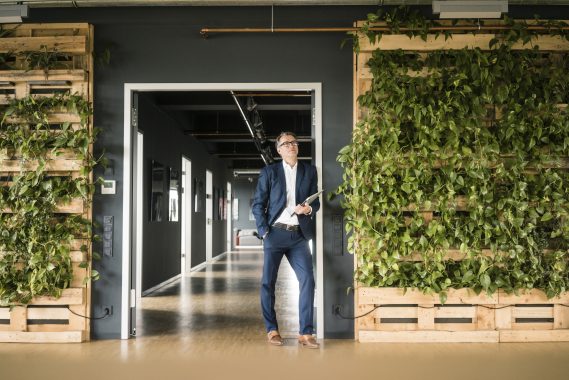Companies are shifting to new integrated business models: ecosystems, a network of cross-industry players that work together to define, build and execute consumer solutions. Accenture identified seven key ecosystems with a global value of about $50 trillion like living, health and mobility that are changing global supply chains.
In addition, sustainability is becoming more and more important, not just from an ethical point of view but in terms of business. Investors expect that the most sustainable companies will outperform the traditional investments in the coming years.¹ (“future-proof” companies).
On the other hand, companies that will not embrace sustainability opportunities will be exposed to many risks, such as fines, procurement risks (especially in industries characterized by raw materials’ scarcity and price volatility) and lockout from the value chain (companies are particularly interested in certifying the end-to-end sustainability of their supply chain).
To tackle those risks, companies are not only investing internally but they are looking at the whole production ecosystem acting as a unique business entity, guided by common purposes. In particular, the heads of the supply chain want their suppliers to become sustainable and are available to help them through huge transformation programs.

Our latest report examines the steps banks can take to mitigate the economic costs and risks of climate change.
LEARN MORETo reach this objective and boost transformation, corporations would like to partner with financial institutions to accelerate supply chain sustainability (e.g. by transferring their credit worthiness).
The opportunity for the banking sector is to customize existing financial products and create additional financial/non-financial services to become enablers of sustainable supply chains.
Many examples of innovative financial solutions are flourishing, allowing companies to access credit leveraging on their sustainability level to obtain a financial advantage backed by the heads of the supply chains.
- Sustainable reverse factoring, to reward with credit facilities companies that over-perform in terms of sustainability scores (e.g. fashion brand Puma suppliers with a high sustainability score can access a favorable reverse factoring realized with BNPP²)
- Financing to support the transition to a more sustainable economy (e.g. the Intesa Sanpaolo 5€bn Circular Economy Plafond³ for which companies are assessed according to a set of circular criteria)
- Impact funds co-funded by head of supply chain corporation
- Non-financial services such as certifications, business and technology matching
By understanding the real needs their customers expect to address, banks have the chance to refresh and enlarge their offerings and lead the sustainability wave of supply chain finance.
1 UBS Return on Values report
2 BNP Paribas and PUMA launch innovative financing program for suppliers to reward social and environmental standards
3 Intesa Sanpaolo renews commitment to the circular economy as a Global Partner











